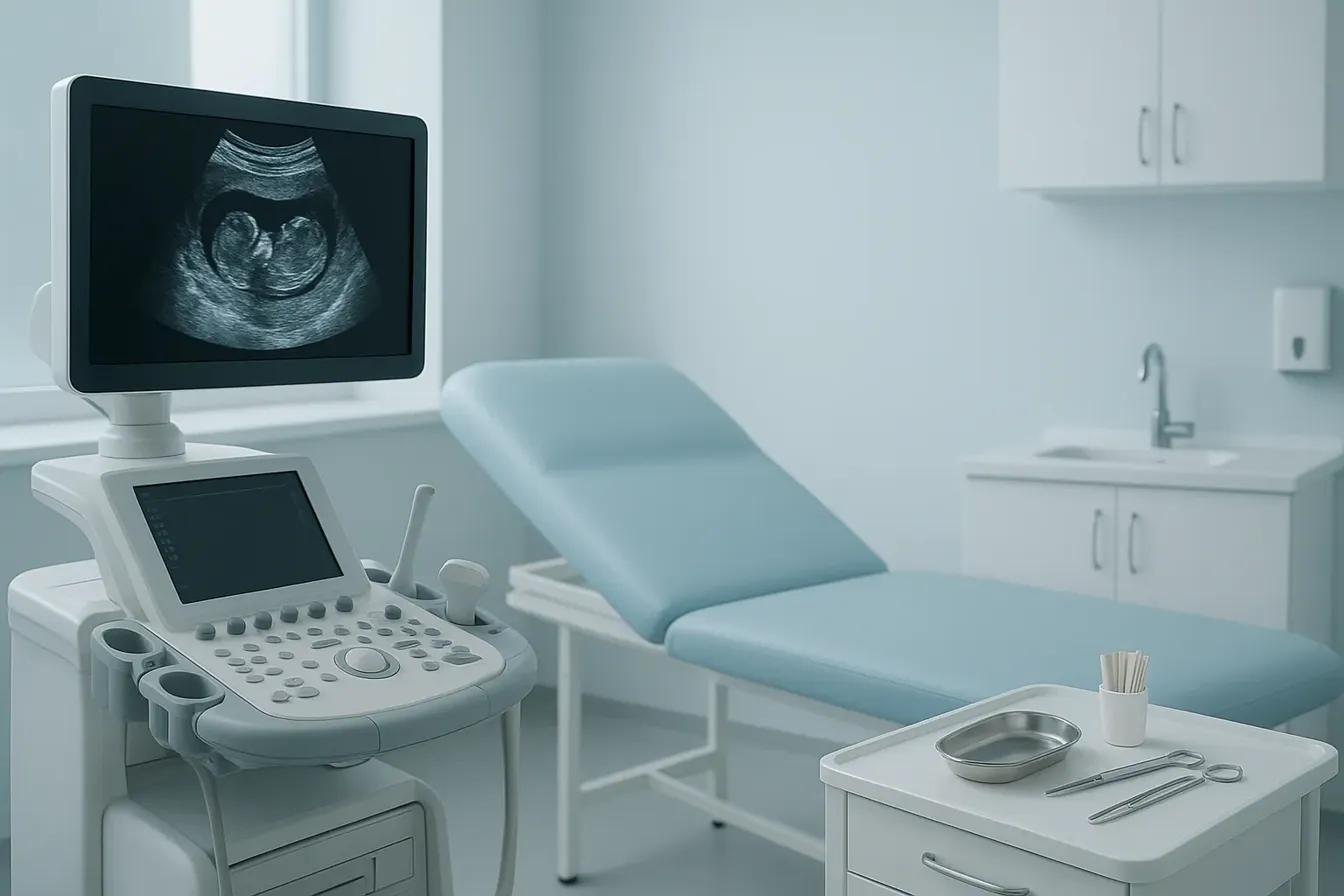Empowering Choices: The Essentials of Birth Control Counseling

Understanding Menopause and Its Impact
Menopause is a significant biological transition that marks the end of reproductive years, typically occurring around age 51. Characterized by a decline in estrogen and progesterone, this phase brings a range of symptoms — from hot flashes and mood swings to bone density loss and cardiovascular changes. Effectively managing these diverse symptoms requires an approach that respects the biological, psychological, and social dimensions of menopause. This article explores both holistic and medical avenues for symptom relief, emphasizing personalized care and multidisciplinary engagement to enhance quality of life during this natural life stage.
Holistic Framework for Menopause Management

What does a multidisciplinary healthcare team involve in menopause care?
Holistic management of menopause is best delivered by a diverse healthcare team. This team typically includes gynecologists, endocrinologists, exercise counselors, public health specialists, and orthopedic surgeons. Each specialist addresses different aspects of menopause—from hormonal changes and bone joint and muscle health to lifestyle and public health concerns.
How does the bio-psycho-social model apply to menopause?
Menopause affects more than just biology. The bio-psycho-social model of menopause emphasizes that menopause encompasses biological changes, emotional experiences, and social factors. This model highlights how emotional wellbeing and social environment — including familial and community support — influence how women experience and cope with menopause.
Why is cultural competence important in menopause care?
Women from different cultural backgrounds may experience menopause symptoms differently and respond to treatments in culturally specific ways. Cultural competence in menopause care ensures that healthcare providers respect and adapt to these differences, improving both symptom management and patient satisfaction.
How is psychosocial support integrated into menopause care?
Psychological wellbeing is a vital component of holistic care. Stress management and psychosocial support, patient education, counseling, and support systems help women manage mood swings, anxiety, and emotional symptoms commonly experienced during menopause.
What considerations are there for long-term therapy?
Menopause is a chronic condition needing sustained management. Patient involvement and adherence are critical to long-term success. Treatment plans are personalized and may integrate Hormone therapy for menopause, Lifestyle changes for menopause, and non-pharmacological therapies for menopause to address evolving needs over time.
Medical Diagnosis and Therapeutic Options for Menopause Symptoms

How Are Menopause Symptoms Recognized and Diagnosed?
Most individuals can identify menopause symptoms such as irregular periods and hot flashes. While blood tests for menopause measuring follicle-stimulating hormone (FSH) and estrogen levels can assist in diagnosis, hormonal fluctuations during perimenopause make results less definitive. Home FSH tests may suggest menopause but lack reliability for confirmation. Diagnosis is often clinical, based on symptom history and duration, with menopause confirmed after 12 consecutive months without a period.
What Role Does Hormone Therapy Play in Managing Menopause?
Hormone therapy for menopause (HT), including estrogen alone or combined estrogen-progestin regimens, remains the most effective treatment for alleviating vasomotor symptoms and preventing osteoporosis. It is typically recommended for women under 60 and within 10 years of menopause onset. Therapy should use the lowest effective dose for the shortest duration possible. Progesterone is advised alongside estrogen for women with an intact uterus to prevent endometrial hyperplasia.
Which Non-Hormonal Medications Are Available?
For women unable or unwilling to use HT, alternatives include low-dose antidepressants (SSRIs, SNRIs), gabapentin, clonidine, and the FDA-approved neurokinin 3 receptor antagonist fezolinetant. These medications can help reduce hot flashes and other menopausal symptoms though generally less effectively than HT.
How Are Vaginal Estrogen Therapies Used?
Local vaginal estrogen treatments such as creams, tablets, and rings effectively treat vaginal dryness, pain during intercourse, and urinary symptoms by moisturizing and restoring tissue health. These are associated with minimal systemic absorption and are considered safe for long-term use.
What Emerging Treatments Exist for Hot Flashes?
New pharmacologic agents like fezolinetant, which targets central pathways regulating body temperature, offer promising alternatives. Other investigational drugs, such as elinzanetant, are under study for vasomotor symptom relief and sleep improvement.
Why Is Patient Education and Medical Consultation Essential?
Managing menopause requires patient-centered care in menopause with individualized assessment and ongoing patient-provider communication. Preparing for visits by tracking symptoms and questions enhances care. Discussions should cover treatment benefits, risks, and lifestyle modifications for menopause. This shared decision-making in menopause management approach supports informed decision-making and adherence to therapy, optimizing outcomes during the menopausal transition and beyond.
Lifestyle Modifications and Non-Pharmacologic Interventions

What dietary recommendations can help manage menopause symptoms?
A balanced diet rich in calcium and vitamin D supports bone health during menopause. Incorporating fruits, vegetables, and phytoestrogen-containing foods like soybeans, tofu, and flaxseed may help balance hormones and reduce hot flashes, though evidence varies. Avoiding trigger foods such as caffeine, alcohol, spicy foods, and refined sugars can lessen hot flashes and night sweats. Maintaining adequate protein intake at each meal supports muscle mass and overall health.
How do exercise and physical activity benefit menopausal women?
Regular exercise, including aerobic and resistance training, can reduce frequency and severity of hot flashes, improve sleep quality, boost mood, and enhance cardiovascular and bone health. Weight-bearing exercises help maintain bone density, and pelvic floor exercises (Kegels) assist with urinary incontinence. Physical activity also contributes to weight management, which may alleviate vasomotor symptoms.
What stress management and mind-body practices are effective?
Practices such as yoga, meditation, deep breathing, tai chi, and hypnotherapy can reduce irritability, hot flashes, and improve sleep quality. Mindfulness-based stress reduction and relaxation techniques help manage psychological symptoms and enhance quality of life. These interventions offer safe complementary support alongside conventional treatments.
Which symptom triggers should be avoided?
Avoiding known triggers like spicy foods, caffeine, alcohol, hot drinks, smoking, and overheating is advised to reduce hot flashes and night sweats. Dressing in layers and using cooling strategies like fans or cold drinks can also mitigate symptoms (ways to manage hot flashes).
How can hydration and sleep optimization support symptom control?
Adequate hydration—approximately 33 ml per kilogram of body weight daily—helps alleviate vaginal dryness and reduce bloating (natural menopause remedies). Good sleep hygiene, regular sleep schedules, and keeping bedrooms cool improve sleep disturbances common in menopause (menopause and sleep).
What role does cognitive behavioral therapy (CBT) play?
CBT effectively addresses mood swings, anxiety, and helps reduce distress related to hot flashes, though it may not decrease their frequency. It also aids in managing sleep problems and overall psychological wellbeing during menopause, making it a valuable non-pharmacologic intervention.
Herbal and Nutraceutical Approaches: Benefits and Cautions
Use of Herbal Remedies
Several herbal remedies for menopause symptoms and nutraceuticals are commonly used by women to manage menopausal symptoms. Black cohosh for hot flashes is popular for its potential to ease mild hot flashes and night sweats. Red clover and soy contain phytoestrogens, plant-based compounds thought to balance hormones and reduce symptoms like hot flashes. Flaxseed also provides lignans and omega-3 fatty acids, with some women finding relief from vasomotor symptoms.
Mixed Evidence of Efficacy
Scientific studies show mixed and inconclusive results for these herbal treatments. While some reports suggest black cohosh may offer symptom relief, others find no significant benefit. Soy and red clover's effects are variable, and robust, long-term safety data are lacking. Similarly, flaxseed has shown inconsistent results for menopause symptom management.
Risks and Side Effects
Herbal remedies can carry risks including rare but serious side effects like liver toxicity from black cohosh. They may also interact with other medications. Products marketed as "natural" do not guarantee safety or quality, and their ingredients can vary.
Bioidentical Hormones Versus Standard Hormone Replacement Therapy
Bioidentical hormones, although plant-derived and marketed as "natural," are typically compounded formulations that lack FDA regulation and standardized safety data. In contrast, standard hormone replacement therapy (HRT) utilizes regulated and tested hormones, with proven efficacy and monitored safety profiles.
Importance of Professional Consultation
Given the mixed evidence and potential risks, consulting with healthcare providers before starting any herbal or nutraceutical therapy is essential. Personalized advice can help balance symptom relief with safety considerations, ensuring the chosen approach fits an individual's health status and treatment goals.
Bone, Muscle, and Cardiovascular Health in Menopause
Osteoporosis Risk and Prevention
During menopause, declining estrogen levels significantly increase the risk of osteoporosis. Estrogen helps maintain bone density, so its reduction leads to accelerated bone loss, heightening the risk of fractures. Preventive strategies include regular weight-bearing and resistance exercises, adequate calcium and vitamin D intake, and pharmacological treatments like bisphosphonates when necessary (Osteoporosis treatment, Managing osteoporosis, osteoarthritis and sarcopenia).
Impact of Sarcopenia and Joint Health
Menopause also affects muscle and joint health, contributing to sarcopenia (loss of muscle mass) and osteoarthritis. These conditions increase the risk of falls and fractures. Holistic management involves strength training to maintain muscle mass and therapies to support joint function, which together reduce falls and fracture risk (Managing osteoporosis, osteoarthritis and sarcopenia.
Importance of Calcium and Vitamin D
Adequate calcium (1,000–1,200 mg daily) and vitamin D (15–20 IU daily) intake is essential during and after menopause to support bone health. These nutrients are obtained from diet and supplements and help counteract bone density loss. Vitamin D also contributes to muscle function (Calcium and vitamin D for bone health, Balanced diet for menopause, Management of menopause).
Relationship Between Menopause and Cardiovascular Disease Risk
Postmenopausal women have a higher risk of cardiovascular disease due to hormonal changes affecting lipid profiles and vascular health. Estrogen loss leads to increased LDL cholesterol and insulin resistance, increasing heart disease risk. Lifestyle modifications and, in some cases, medical interventions can mitigate these effects (Holistic management of menopause, Menopause overview).
Role of Lifestyle and Medical Interventions
A combination of lifestyle changes—such as engaging in regular physical activity, eating a heart-healthy balanced diet rich in fruits, vegetables, calcium, and vitamin D, maintaining a healthy weight, and avoiding smoking—can improve bone, muscle, and cardiovascular health. Medical therapies include hormone therapy within recommended guidelines and medications for osteoporosis and cardiovascular risk when indicated (Managing menopause symptoms, Hormone therapy for menopause).
Psychological Wellbeing and Social Support Systems
How can mood swings, anxiety, and depression be managed during menopause?
Mood swings, anxiety, and depression are common during menopause due to hormonal fluctuations and life transitions. Management strategies include cognitive behavioural therapy (CBT), which has proven effective in reducing low mood and anxiety. Physical activity, relaxation techniques like yoga and meditation, and proper sleep hygiene also support emotional balance. For some women, hormone therapy may alleviate mood symptoms, but non-hormonal medications, such as antidepressants, can be alternative options.
What support exists for cognitive challenges and memory during menopause?
Memory difficulties and cognitive changes often accompany menopause. Maintaining a mentally active lifestyle, regular exercise, social engagement, and ensuring good sleep quality can help mitigate these cognitive symptoms. Some mind-body practices like meditation and acupuncture have shown mixed evidence for benefit, highlighting the importance of an individualized approach.
Why is social and familial support important for menopausal women?
Menopause impacts not only the individual but also their social environment. Emotional support from family, friends, and peers provides validation and comfort, helping women cope with symptoms. Community awareness and support groups offer shared experiences and reduce feelings of isolation, empowering women through understanding and collective encouragement.
Which stress reduction techniques aid psychological wellbeing during menopause?
Stress management techniques such as deep breathing exercises, mindfulness, hypnotherapy, and yoga can reduce symptom severity and improve sleep quality. These integrative practices promote relaxation, lessen anxiety, and enhance mood stability during the menopausal transition.
How do psychotherapy and support groups complement menopause care?
Psychotherapy, including CBT and clinical hypnosis, offers tools to manage distressing symptoms like hot flashes and mood changes. Support groups provide a safe space for sharing experiences and learning coping strategies, fostering empowerment and improved psychological wellbeing. Integrating these approaches with medical care enhances holistic menopause management.
Emerging Trends and Future Directions in Menopause Care

Multidisciplinary Menopause Centers and Specialist Care
Menopause care is evolving with the establishment of specialized, multidisciplinary menopause centers at leading academic health systems. These centers, found at institutions like the Mayo Clinic, NYU Langone, UCLA, and Johns Hopkins, incorporate teams of certified specialists including gynecologists, endocrinologists, and mental health professionals to provide comprehensive care. This approach supports addressing complex and varied menopausal symptoms with tailored management based on the bio-psycho-social model of menopause.
New Medications Transforming Symptom Management
Recent years have seen the approval of novel medications such as fezolinetant and elinzanetant, which target neurokinin 3 receptors involved in body temperature regulation. These drugs offer promising non-hormonal alternatives for managing vasomotor symptoms like hot flashes, expanding options beyond traditional hormone therapy and other non-estrogen treatments for menopausal symptoms.
Increased Professional Certification and Training
There is growing recognition of the need for enhanced provider education in menopause care. More healthcare practitioners are obtaining specialized certification through organizations like The North American Menopause Society, improving expertise. Efforts by institutions such as UCLA aim to combat misinformation by expanding professional training nationwide, promoting a multidisciplinary healthcare team approach.
Public Awareness and Advocacy
Public figures and campaigns have helped increase awareness about menopause's impact, encouraging women to seek appropriate care. This advocacy has fueled increased research funding, policy attention, and the development of resources to support menopausal women, including policy advocacy for menopause care and economic impacts of menopause management.
Importance of Personalized Treatment Plans
Emerging practice emphasizes individualized care integrating patient preferences, symptom profiles, and medical history. Personalized plans may combine lifestyle modifications, conventional hormone therapy, non-hormonal medications, and integrative therapies to optimize quality of life during menopause under a patient-centered care in menopause framework.
Together, these trends reflect a more holistic, patient-centered and scientifically advanced approach to menopause management, with ongoing innovations likely to further improve care outcomes.
Empowering Women Through Integrated Menopause Care
Menopause is a multifaceted transition that affects physical, emotional, and social health. Managing its symptoms effectively depends on embracing a holistic, patient-centered approach alongside evidence-based medical treatments. By combining lifestyle changes, psychosocial support, herbal and nutraceutical assistance, and appropriate pharmacological therapies, women can better navigate this phase with improved quality of life. Emerging therapies and specialized menopause care programs further enrich available options. Crucially, personalized care that recognizes individual needs and cultural backgrounds remains the foundation for optimal management and empowerment throughout the menopausal journey.





.png)